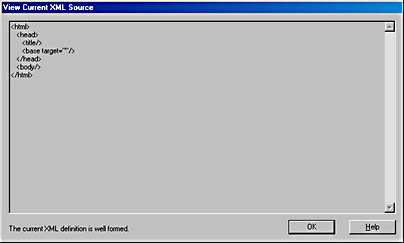
- Baseelements xml pro#
- Baseelements xml code#
- Baseelements xml free#
Baseelements xml code#
If base type's content model always appears first, application code written to process the base type will also work correctly on the derived types. This is designed for compatibility consideration. Long answer: In extension, base type's content model will appear first. For your problem, one workaround is to define a named model group containing "firstname" and "lastname" elements, and reuse it in both "personinfo" and "fullpersoninfo": Here's what I have now: joe smith 1 main st Anytown USA įor this xsd schema: Here's what I want: 1 main st Anytown USA joe smith Without changing my inheritance hierarchy (the "firstname" and "lastname" are in the base), can I get "address", "city", "country" to be at the beginning of the sequence of elements? xsd schema with an "extension" of fullpersoninfo based on personinfo.
DsmEventDecoder.psm1 - The powershell module, which queries the event logs for information, calls the FormatDsmEventLog cmdlet to parse and decode the event information.Here's my. This file can be modified as needed to define the location of event log data to decode. 
For convenience the decoding process will not only attempt to decode messages from the DSM, but also messages reported by Microsoft MPIO.
LogsToDecode.xml - This XML file defines the source(s) of the event log data. Fortunately there is paid sponsor/support option. It should not be modified as any change can cause a failure in properly decoding events. BaseElements Plugin Functions The BaseElements Plugin is extremely useful, open source, and free. EventComponents.xml- This XML file provides details for each event generated by the DSM and the base component data reported. BaseComponents.xml- This XML file provides details on each base component and should not be modified as any change can cause a failure in properly decoding events. 
The decoding process will utilize the XML files described below. So you can add functionality to do things in FileMaker like : HTTP and FTP : run HTTP through cURL and do FTP commands too.
Baseelements xml free#
'DecodeEvents.bat - This batch file invokes a new powershell session to execute the decoding process. The BaseElements Plugin is a free and open source plugin that adds functionality to your FileMaker solution by adding extra functions you can call, to do things that FileMaker currently doesnt do. The 'decoder' directory contains all the files used to decode the event logs. This document can be imported to applications such as Excel for viewing. A PowerShell script and cmdlet uses the XML and Event Logs to generate a CSV-formatted document containing the decoded events. EVTX file, or can be decoded directly on a Host if there is access to the required Event channels. Events that need to be decoded are saved to an. These XML definition files are shipped with the solution. updated the Twilio with Automatic Delivery Receipts Gateway record to use the StatusCallback parameter instead of a TwiML app for storing the delivery receipts URL v3. updated to support new Quiubas SMS API v3.83 14/09/ 2018. 
As the constant char(0) is treated as an empty string, you cannot use it as an argument in a substitute function. Sure how it got there, but difficult to clean - and creates potential problems when exporting to various file formats, like XML.
Baseelements xml pro#
When the DSM solution is built, the source code is scanned by a script which generates several XML definition files describing details of each Event and the associated base components. updated to BaseElements plug-in to v3.3.8 (Code Signed) for FileMaker Pro 18 compatibility v3.84. Especially from FMP11 bases, some fields contains a char(0) inside the field. The component information is a raw stream of bytes that is decoded and merged with the other data to present a complete description of each event record. For example, if you're working in a solution and need a script or a set of script steps that you're going to repeat a few times, you can paste them into BE and then copy them. Version 2.x of the DSM provides an internally-consistent way of storing information about an object, such as a disk device or controller, which can be provided as part of each record written to an event channel. BaseElements version 17 introduces a new Clip Manager function to allow you to store copied FileMaker data inside BaseElements for future use. 
Event decoding provides a description of how DSM provides way to store information about an object, and general rules for decoding such information.








 0 kommentar(er)
0 kommentar(er)
